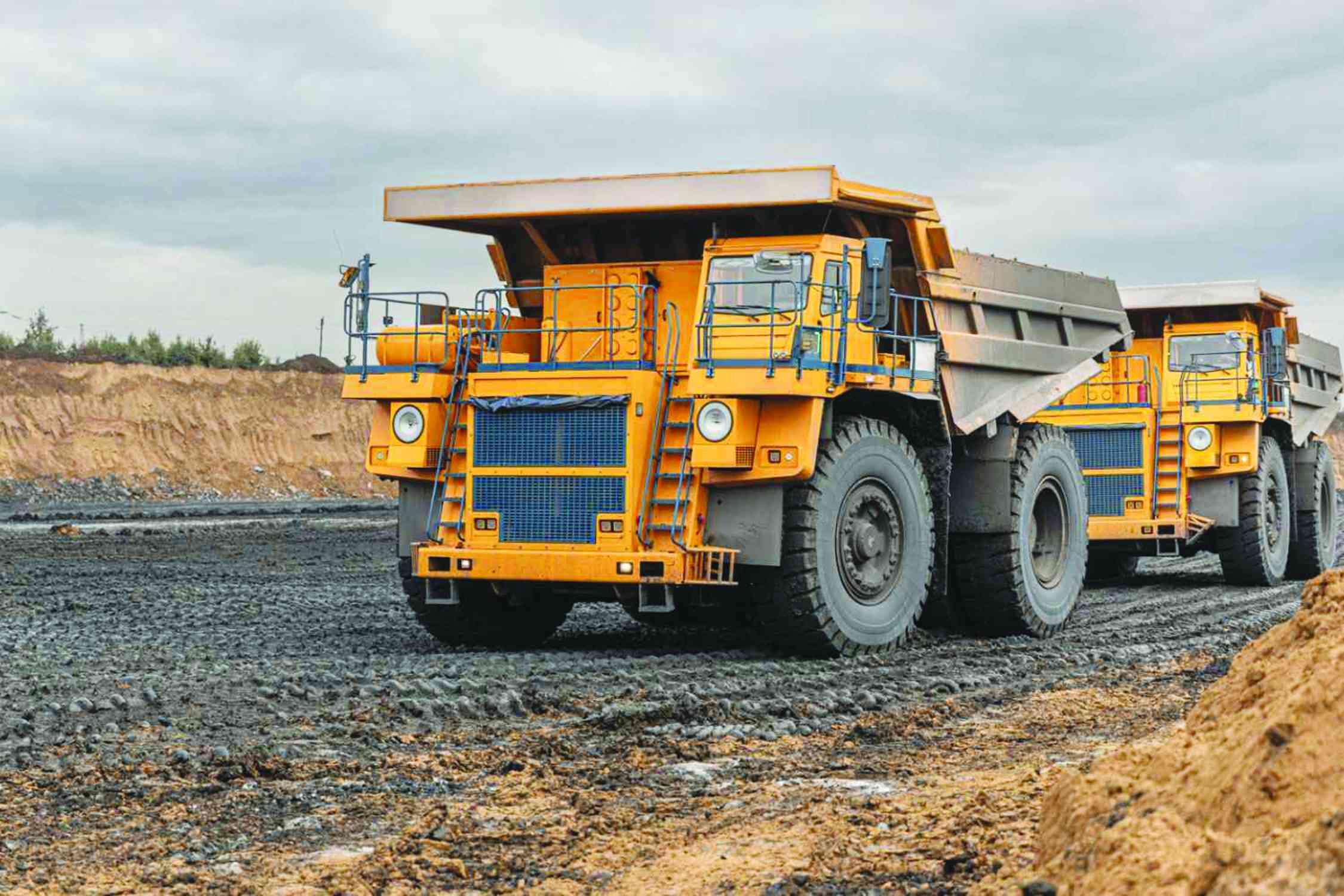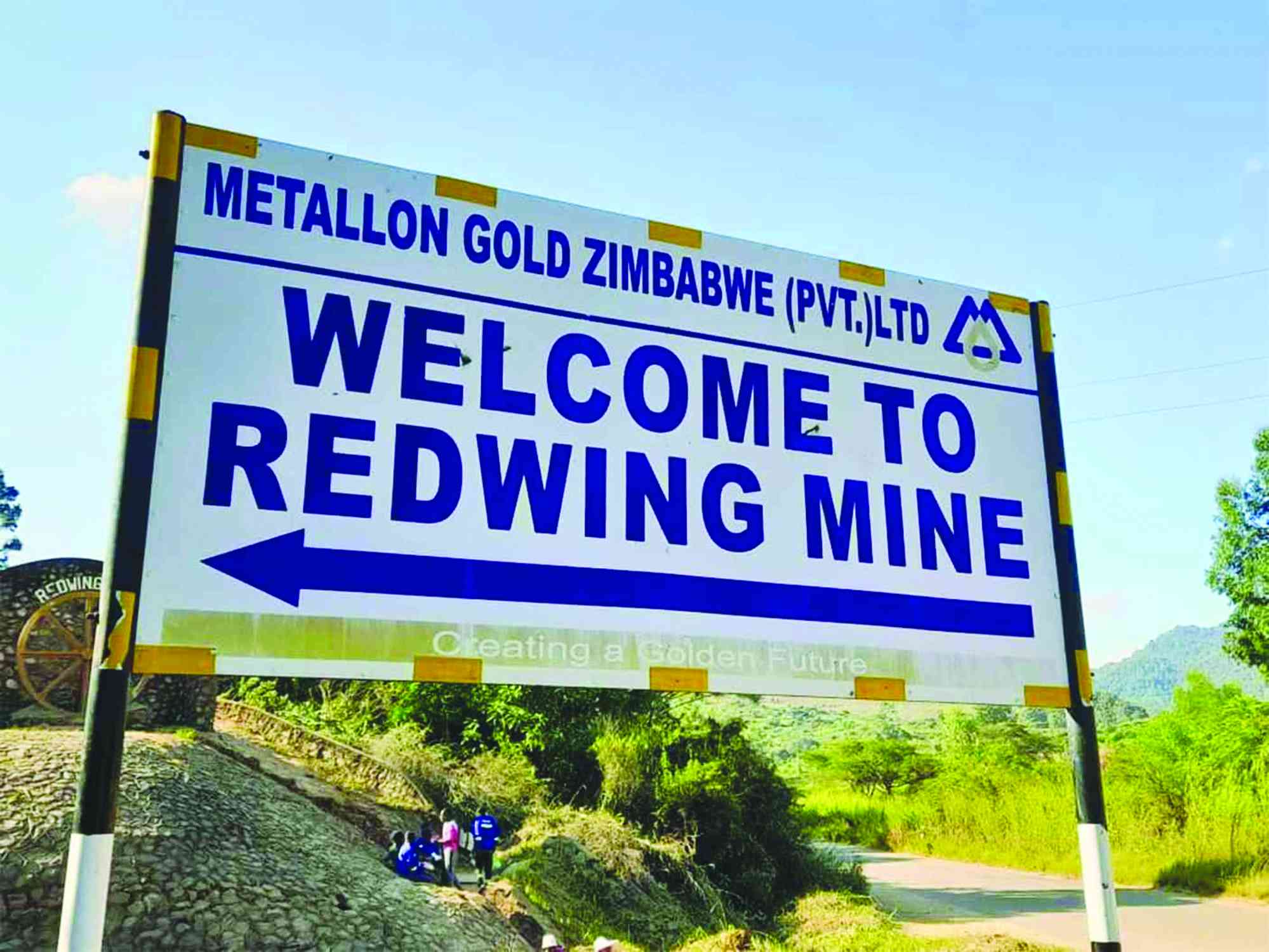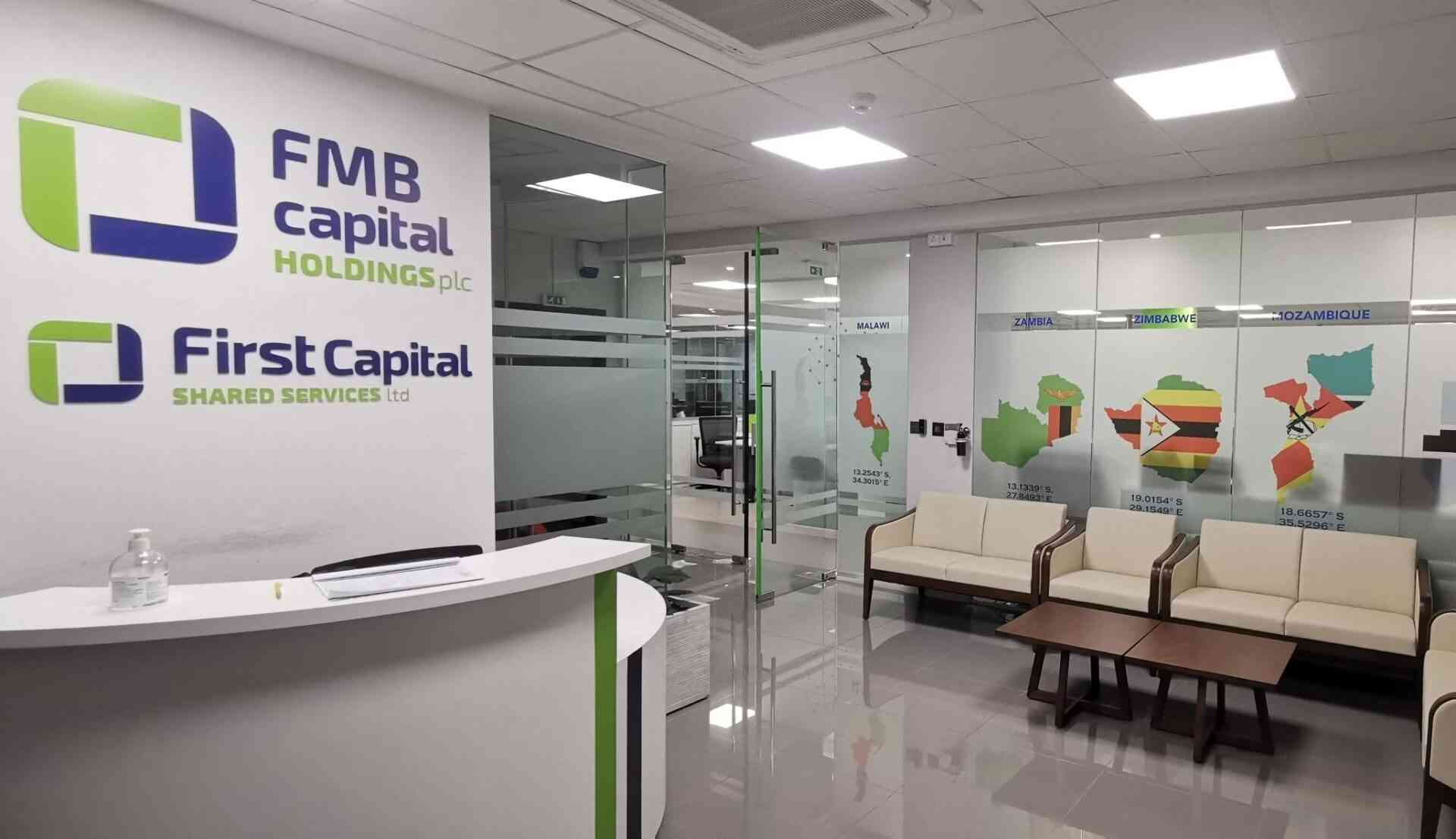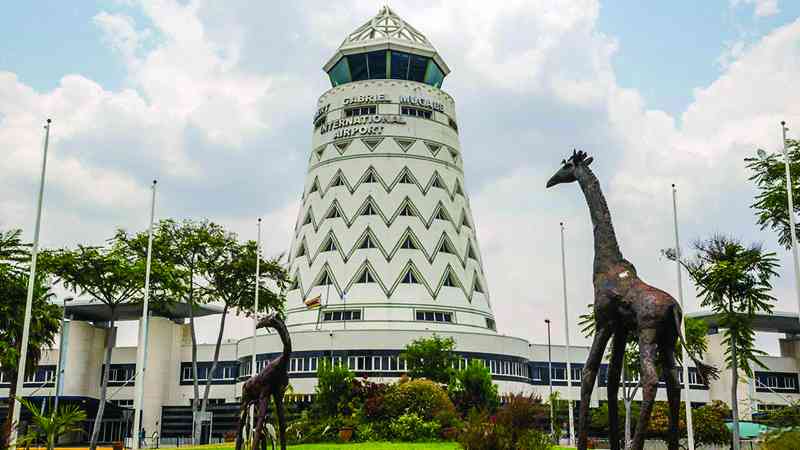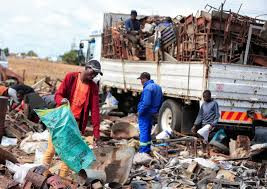
SCRAP metal refers to steel, aluminium, and copper, among other metals, which have been stripped from functional or waste products and are destined for recycling.
It can be harvested legitimately by honest waste pickers and dealers, who buy from households and companies. However, in other cases,criminals (including sophisticated syndicates) may also harvest it through theft and then sell it to unsuspecting or colluding metal refiners, for a profit.
Usually, small and informal metal refiners are the ones who assist scrap metal thieves to smelt their stolen scrap. Smelter companies can purchase scrap from dealers (legitimate or illegitimate) then resell their refined metals as raw or processed copper, aluminium or steel products.
If the smelters cannot sell the refined products domestically, they can also export them.
There is a huge demand for scrap copper in China, Germany and Belgium while aluminium scrap is in huge demand in India, China and Germany. On the other hand, scrap steel is highly sought after in Turkey, India and Belgium, among other countries.
When thieves begin to increasingly participate in a country's scrap metal value chain, the nation can be expected to encounter many kinds of problems, some of which will be explained later in this article.
Policymakers and relevant stakeholders, therefore, need to be aware of the various vulnerabilities associated with the local scrap metal value chain.
For Zimbabwe, it may even be important to prepare for any future eventualities, such as attacks on public and private infrastructure by criminals for the purpose of harvesting scrap.
- ‘Zim loses US$1,5m/yr to scrap metal smuggling’
- Introduce stringent measures to address scrap metal theft
Keep Reading
This preparation beforehand will ensure that even when the economy begins to vibrantly grow, development will not be disrupted by unscrupulous participants in the scrap metal value chain.
The ongoing global transition to carbon-neutral technologies, such as renewable energy (solar, wind, hydroelectricity) and battery electric vehicles, is likely to sustain the increase in demand for metals, such as copper, steel and aluminium.
The surge in demand will also result in an increase in their respective prices. This also means that public and private infrastructure, which is constituted of the aforementioned metals, will need to be managed and protected in a more enhanced way, in order to combat the dismantling of its components by criminals, for the harvesting of scrap.
Scrap metal can be sourced from household waste, industrial waste (such as manufacturing off cuts), functional or disused public infrastructure (electricity transmission infrastructure, water reticulation pipes, railway track) and junked equipment (vehicles, machinery, etc).
Of the three metals, copper is the most sought-after, because its scrap and finished products fetch the highest price per tonne. Currently, it sells for as much as US$9 000 per tonne.
Aluminium is the second-most expensive and sells for around US$2 600 per tonne, based on prevailing international prices while steel is the cheapest, fetching around US$800 per tonne.
Since copper is worth far more than the other metals, it is highly attractive to criminal syndicates and its theft can be equally disruptive to the economy.
Scrap copper is typically in high demand because it is easier to refine and cheaper than raw copper. When smelted, the metal can be used in the manufacturing of electrical equipment including electricity transmission cables, overhead railway cables for powering electric locomotives (trains) and electrical transformers.
It is also used in the production of plumbing products, industrial machinery, kitchenware, etc.
Impact of theft
When scrap metal theft affects rail and electricity transmission, there are financial losses for the affected companies such as National Railways of Zimbabwe (NRZ), Zesa Holdings, etc.
However, the overall economic and social costs of such theft are several times higher than the actual goods, which would have been stolen.
The NRZ, manages about 3 000 kilometres of rail network whose infrastructure is rich in copper, aluminium and steel metals. When any of the NRZ's infrastructures is vandalised or stolen, this results in an immediate loss to the company of the face value (direct) cost needed to nreplace it.
However, passenger and freight rail trips of the company's customers will also be affected. Unfortunately, NRZ has already discontinued passenger rail trips, which were typically cheaper than road transport.
Road freight is similarly more expensive than rail freight. Bulky commodities such as coal, chrome, and iron ore, for example, will almost certainly be extracted at a much slower rate, when rail freight is unavailable.
In all this, the NRZ would have lost not only its infrastructure but potential revenue as well. Zimbabwe would lose out on job creation and foreign exchange earnings when exports are limited by poor rail infrastructure.
Moreover, the increased use of road instead of rail for freight transport is known to accelerate the degradation of domestic road networks.
A major regrettable issue pertaining to the theft of overhead rail lines and other rail infrastructure, is that, it is facilitated by employees of the rail company and well-financed criminal syndicates, in several cases.
This is because criminals need substantial knowledge, equipment and personnel if they are going to successfully steal the sophisticated equipment.
Zesa's electricity infrastructure is greatly dependent on copper - from transmission cables, to transformers and grounding wires. So, the company has to be vigilant and diligently pre-empt any manoeuvres of thieves.
Zesa uses copper, aluminium and steel for its various types of infrastructure. It losses revenue whenever there are blackouts due to infrastructure theft.
Increased unreliability on the part of the electricity company also drives households and businesses to migrate to alternatives, such as renewable energy or diesel generators, which further reduces Zesa's revenue.
Theft of copper can lead to the damage of associated equipment, making the cost of repairs up to 10 times the value of stolen materials, sometimes.
Moreover, it can drive the company to increase its security budgets (for armed guards, drones, etc), which would have been minimal, had it not been for thefts.
Vandalism and theft of transmission infrastructure can cause telecommunications and internet disruptions. It can also result in fluctuations in electricity voltage, which damages electrical equipment and appliances belonging to households or businesses connected to the grid.
Furthermore, it can cause water and sewage infrastructure malfunctioning. In some cases sewage treatment plants end up dumping raw sewage into the country's watercourses when their electricity connection is cut off.
Factors which enable theft
There are a number of factors, which facilitate the theft of scrap metal.
Finding ways to address them will be essential in order to curtail the impact.
Firstly, when metal prices rise internationally, this can drive local criminals to strip infrastructure and steal from the public for the purpose of reselling domestically or even exporting.
The collusion of criminals with internal staff who work for utilities companies can also be troublesome. For employees to end up engaging in such activities, it is possible that they might be underpaid or neglected at their workplace.
It is also possible that when workers identify loopholes, such as poor stock control at their company, some of the sinister ones may exploit them, through stealing equipment at company premises (for its scrap metal value).
Moreover, when staff are aware that there are no consequences for misbehaviour, they can end up looting company resources at their designated branches or in other parts of the country.
When utility companies (Zesa, NRZ, Zimbabwe National Water Authority) do not substitute copper (which is expensive) with cheaper metals such as aluminium and steel, where possible, they make their infrastructure an attractive target for criminals.
Additionally, the increase of unregistered and unscrupulous smelters and metal recyclers, can stimulate criminal activity. Thieves usually use unregistered metal recyclers to smelt their scrap, so that its origins are further concealed and can be sold domestically or exported, with relative ease.
The law requires all legitimate metal recyclers to be formally registered and to record the identification details of their suppliers, in order to deter criminal activity.
Zimbabwe also does not have an accessible, centralised and electronic register, which authorities can use to immediately assess which recyclers are legally compliant and which ones are not.
Solutions
As Zimbabwe's public and private infrastructure gets endowed with more copper, aluminium and steel, relevant sites need to be "hardened" against theft.
Copper, which is typically expensive, needs to be replaced with aluminium (which is cheaper), where possible. Cables and other metallic equipment belonging to major utility companies need to be marked with the respective company's brand name or other unique identifiers, so that it can be easy to recover, when stolen.
Replacing normal copper cables with worthless substitutes, such as tiger wire can deter theft. The use of technologies such as drones, cameras and artificial intelligence (AI) can assist in pre-empting and resolving further crimes.
Enhanced stock control and decent working conditions for employees in utility companies, will go a long way to demotivate workers from entertaining criminal thoughts.
Infrastructure companies should be required to report every significant theft on their financial records and to the police. This will help through providing timely data on the extent of the problem.
When stolen goods are recovered, 15% of their value may be given to whistle-blowers (informers), as a reward. This will assist in quickly identifying criminal activity and reducing the scale of the problem.
An electronic database with details of registered metal smelters will be essential in order to enhance any inspections by authorities, who regularly need to confirm the authenticity of a smelting company.
Also, smelters may be required to strictly use online bank payment as a means to pay for any scrap delivered to them. This will make it easier to track the suppliers of the scrap and even discourage criminal activity. State security efforts against the theft of scrap will need to be strengthened. The Zimbabwe Republic Police (ZRP), National Prosecuting Authority (NPA) and other agencies of government should assign dedicated personnel towards the theft of scrap.
The aforementioned agencies (ZRP and NPA) should also pursue many prosecutions and convictions if possible. The police should be encouraged to prioritise scrap metal theft, ahead of many other crimes, especially if the problem gets worse. This will facilitate swift responses to crime and thorough investigations.
If scrap metal theft ever goes out of control, such that public infrastructure companies are substantially affected, the government can implement a temporary total ban on the trade in certain or all kinds of scrap.
The temporary measure can create an opportunity for authorities to re-mobilise their resources towards addressing the challenge. Exports of scrap can also be prohibited if local steel recyclers and smelters cannot get input from scrap traders, who might prefer to sell their commodities on the international market. This will serve to preserve both local jobs and infrastructure.
Tutani is a political economy analyst. — [email protected].

